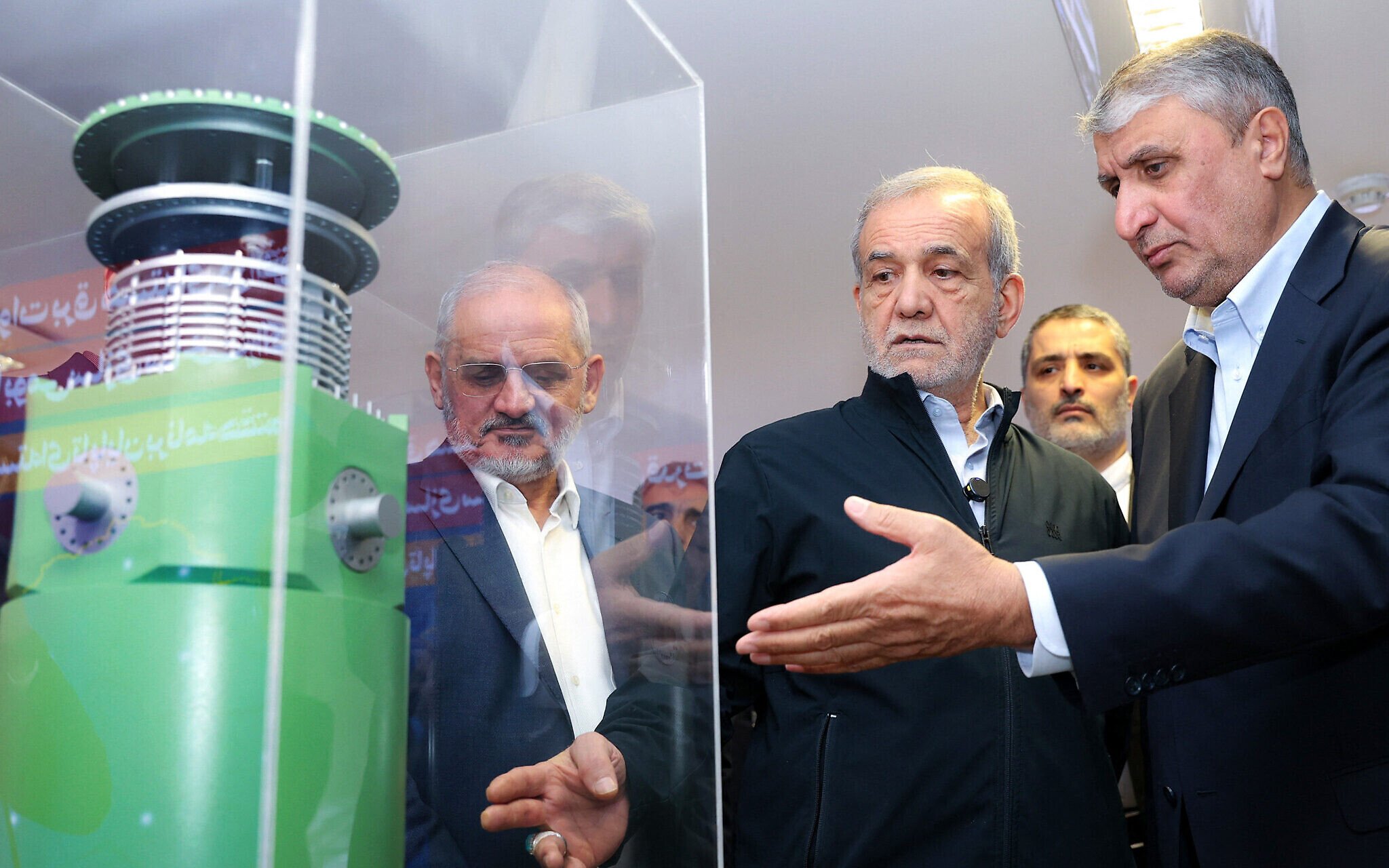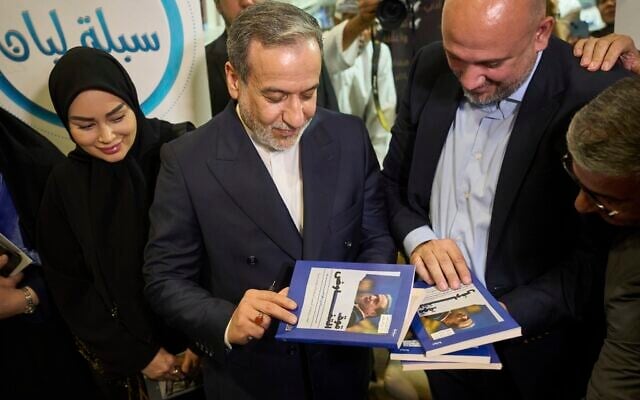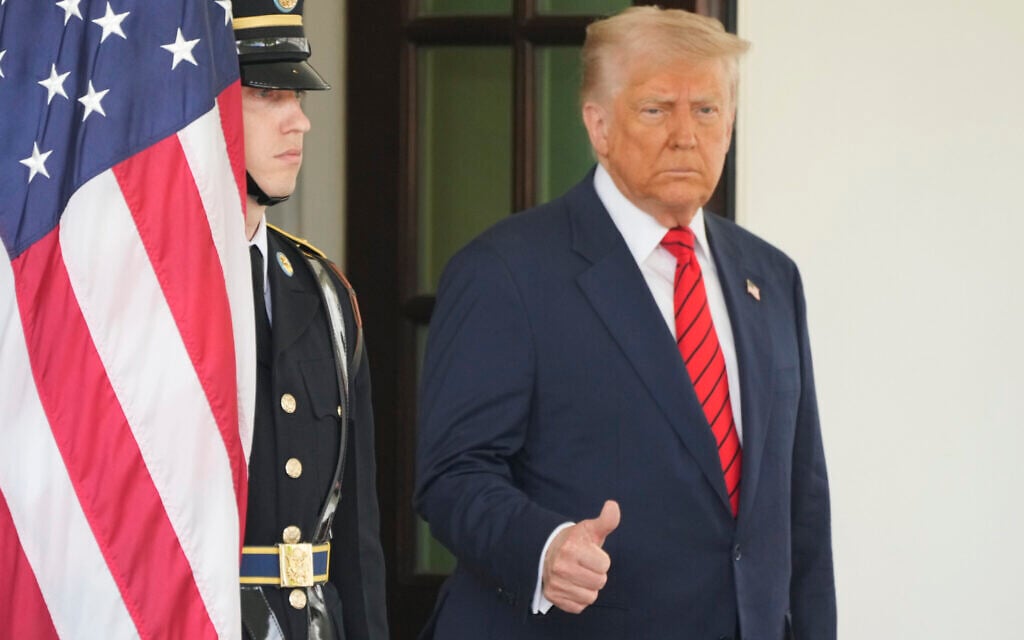U.S. President Donald Trump suggested on Wednesday that he aims to “destroy” Iran’s nuclear centrifuges via a deal with Tehran, although he is ready to carry out such destruction using military force if needed.
During an appearance on conservative talk show host Hugh Hewitt’s radio program, when asked if the U.S. presented Iran with a choice of either surrendering their nuclear centrifuges and uranium or facing bombing, President Donald Trump replied, “It’s that straightforward.”
For their part, Iranian officials have asserted that they will never dismantle their nuclear centrifuges.
“I would much prefer a strong, verified deal where we actually blow them up… or just de-nuke them,” Trump said. “There are only two alternatives there, blow them up nicely or blow them up viciously.”
Earlier in the day, though, when Trump was asked by reporters whether the US position is to allow Iran to have a limited nuclear enrichment program, Trump responded, “We haven’t made that decision yet. We will.”
The separate comments further underscored the seeming lack of clarity regarding the administration’s position on Iran, as some officials have said they are prepared to allow Iran to have limited enrichment capabilities, while others have said that they want the nuclear program completely destroyed.
On Sunday, Trump said that the aim of his administration’s nuclear talks with Iran is to achieve “total dismantlement” of Tehran’s nuclear program, but that he is open to letting the Islamic Republic pursue civilian nuclear energy.

Trump’s comments to Hewitt on Wednesday appeared to be closer to the position of Prime Minister Benjamin Netanyahu, who also has
said
he would be willing to accept a deal in which Iran’s nuclear facilities are physically blown up and dismantled.
At the same time, Trump, Vice President JD Vance and Secretary of State Marco Rubio officials have expressed openness to allowing Iran to have a civilian nuclear program, so long as it does not include enrichment and if it imports the non-weapons grade uranium from abroad, as a number of countries do. Israel has not recently indicated whether it would accept such an outcome.
US Special Envoy to the Mideast Steve Witkoff, who is leading the talks with Iran, has indicated openness to even allowing Iran to have a uranium enrichment program, so long as it is capped at a certain level akin to the nuclear deal signed by former president Barack Obama in 2015. Trump pulled the US out of that deal three years later, and Iran has significantly expanded its nuclear enrichment since.
The US and Iran are slated to hold their fourth round of talks this weekend in Rome.
The negotiations will come days after Oman brokered a separate deal between the US and the Houthis, in which the US agreed to halt its strikes in Yemen in exchange for the Iran-backed rebel group halting its attacks on US ships in the Red Sea.
Reports on Wednesday claimed that Iran leaned on the Houthis to agree to the truce in order to advance the separate nuclear talks it’s holding with the US.

Speaking to reporters later Wednesday, Trump said he takes the Houthis at their word that they will honor the truce announced on Tuesday.
“We take their word for it… We hit them very hard. They had a great capacity to withstand punishment,” he said. “You could say there’s a lot of bravery there.”
Previously on Wednesday, Vance informed the Munich Leadership Conference held in Washington that discussions regarding Iran’s nuclear program are progressing positively. He emphasized that Tehran could possess civilian nuclear energy capabilities but should not engage in enrichment activities that might result in nuclear arms.
“We don’t mind if people support nuclear power. That’s acceptable to us, but they cannot possess an enrichment program that could lead to the development of a nuclear weapon, and this is where we set our limit,” Vance stated additionally.
Iran and the U.S. have been engaged in nuclear discussions since April 12, representing their most significant interaction since the U.S. pulled out of the key agreement with Tehran back in 2018, which was during Trump’s initial tenure as president.
When questioned about potential similarities between a new deal with Iran and the prior one, Vance highlighted “some problems with the former agreement,” stating that its inspection process was “extremely inadequate” and permitted Iran to continue moving toward developing a nuclear weapon.
“We think that there is a deal here that would really integrate Iran into the global economy, that would be really good for the Iranian people, but would result in the complete cessation of any chance that they get a nuclear weapon — that’s what we’re negotiating towards,” Vance said.
The post
Trump: Iran’s centrifuges will either ‘blow up nicely’ in a deal or ‘viciously’ without one
appeared first on
The Times of Israel
.
Don’t overlook crucial Israel news — subscribe to the complimentary Times of Israel Daily Edition.







